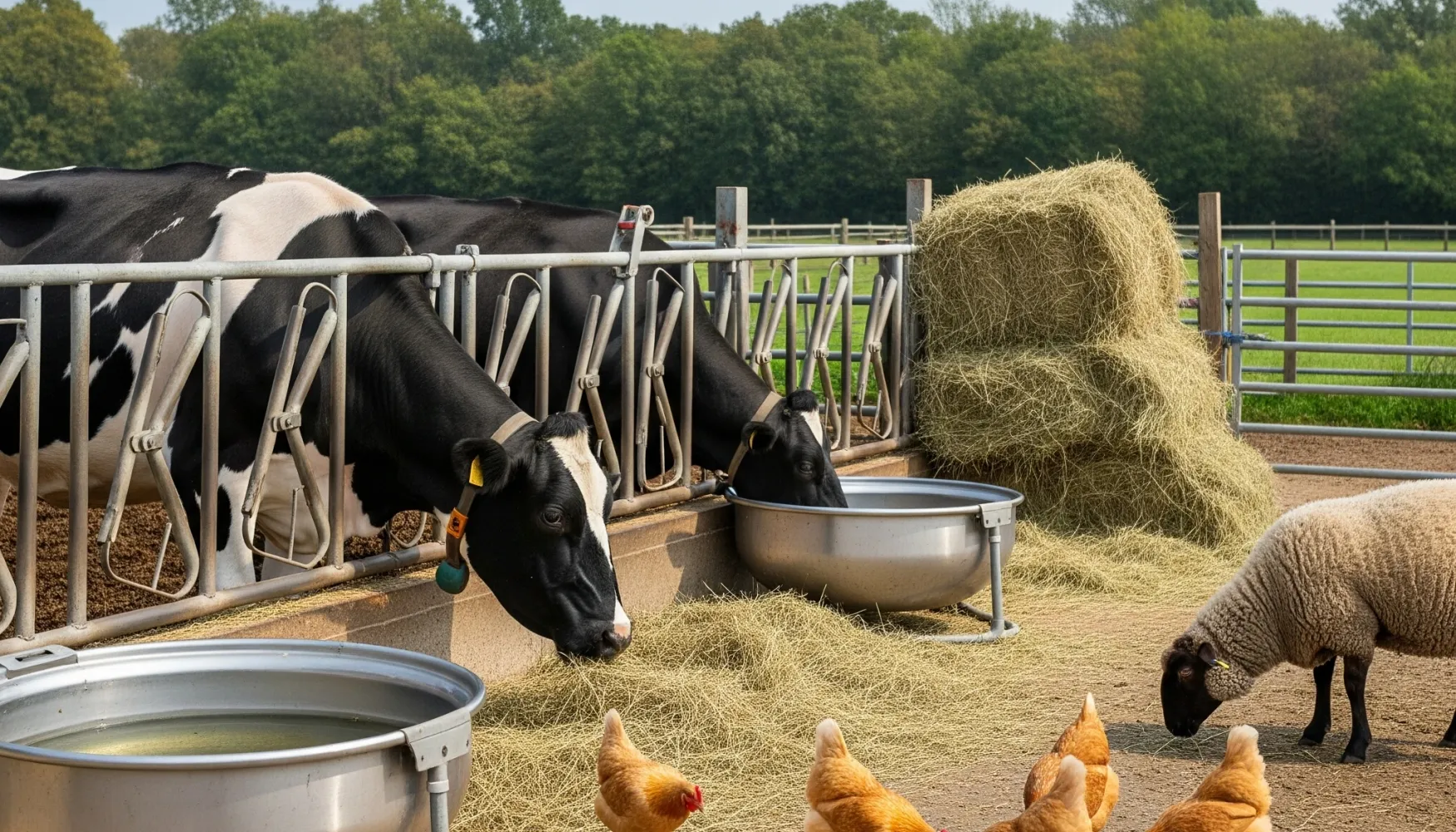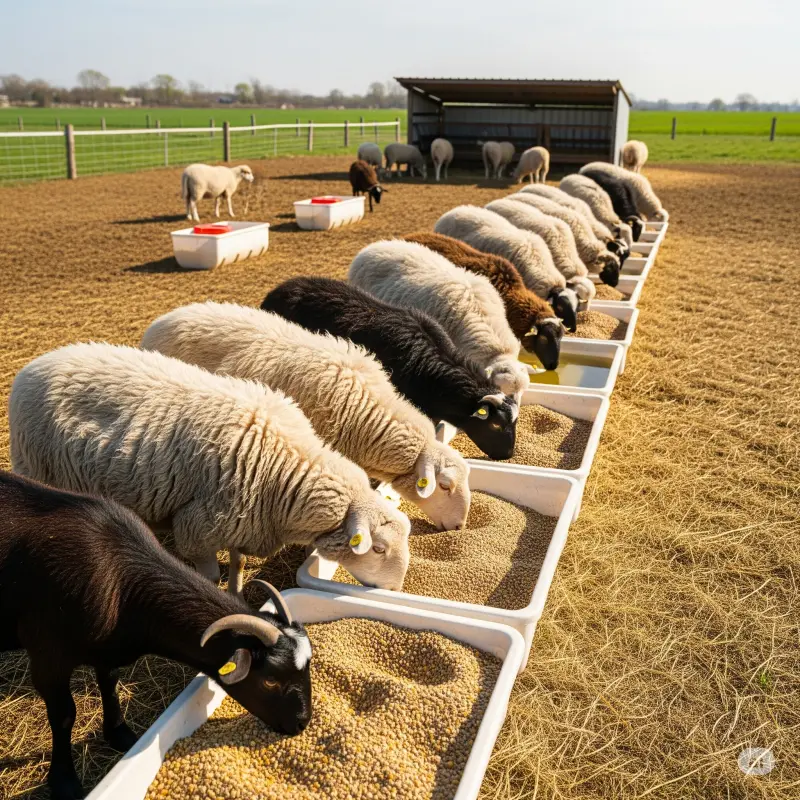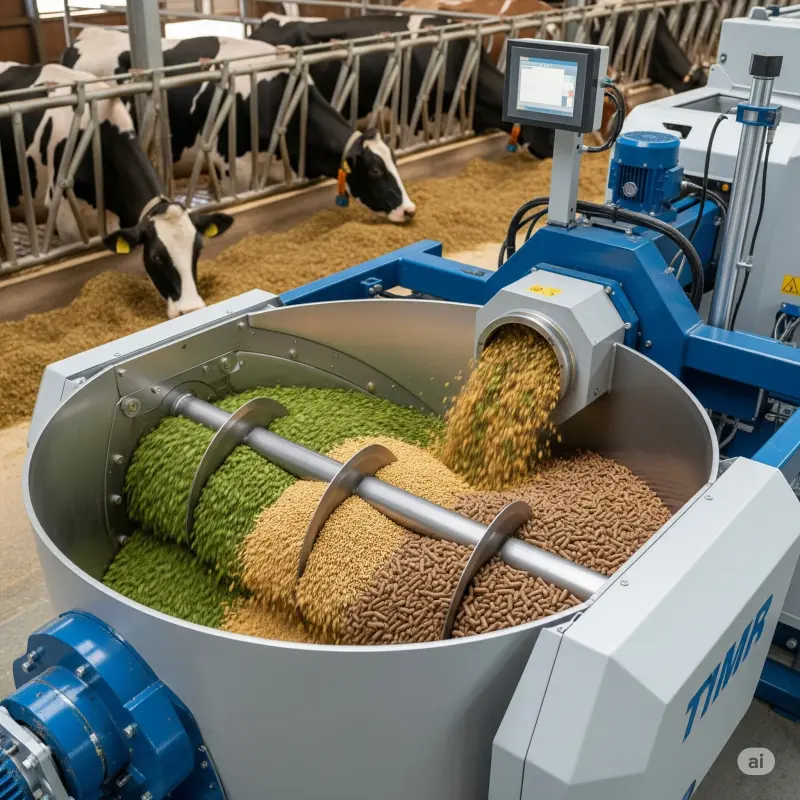Animal Nutrition Principles for Beginners
Discover the basic principles of animal nutrition for your animals' health and productivity. Important principles such as feeding according to species and age, balanced rations, and using quality raw materials are in this guide!

When stepping into animal husbandry or aiming to enhance the health and productivity of your existing animals, **proper nutrition** stands as one of the fundamental pillars. Animal nutrition is far more than just filling bellies; it directly impacts an animal's quality of life, disease resistance, and production capacity. This guide will simply explain the basic principles of animal nutrition for beginners.
Why is Animal Nutrition Important?
Proper nutrition ensures your animals:
Grow and develop healthily.
Are more resistant to diseases.
Increase production yield (meat, milk, eggs, wool, etc.).
Improve reproductive performance.
Enhance their general well-being and quality of life.
Basic Principles of Animal Nutrition:
Feeding According to Animal Species and Age:
Every animal species (cattle, sheep, goat, chicken, fish, etc.) and even different age groups within the same species (young, juvenile, adult, old) have **different nutritional needs**. For example, a chick needs high-protein feed for rapid growth, while a dairy cow's energy and calcium needs are paramount. You must tailor your feeding program according to the animal's species and life stage.
Preparing a Balanced Ration:
A ration is a mixture of nutrients (energy, protein, vitamins, minerals, fiber, water) that an animal needs to consume daily, combined in specific proportions. A balanced ration ensures that no nutrient is deficient or excessive. Deficiencies can lead to production loss or diseases, while excesses can increase costs and, in some cases, cause toxic effects. Getting help from an expert (veterinarian, agricultural engineer) or using commercial feed can be a good starting point.
Using Quality Feed Raw Materials:
The most important factor determining the nutritional value and reliability of feeds is the **quality of the raw materials** used. Moldy, stale, or contaminated feeds can lead to serious health problems in animals. Ensure that raw materials such as corn, barley, soybean meal, wheat, and alfalfa are fresh, dry, and clean.
Continuous Access to Water:
Often overlooked but **one of the most critical elements** of nutrition is water. Water is vital for the proper functioning of animals' bodily functions, digestion, and nutrient absorption. Make sure your animals always have access to clean, fresh, and sufficient water. It's important for water not to freeze in winter and to stay cool in summer.
Gradual Feed Changes:
Sudden changes in an animal's ration or feed type can lead to digestive disorders, stress, and reduced productivity. Make sure to implement any feed changes **gradually, over several days or weeks**. This helps animals adapt to the new feed.
Appetite and Health Monitoring:
Your animals' appetite and general health condition are the most important indicators of how successful your feeding is. Sudden drops in feed intake, lethargy, hair loss, or diarrhea can indicate a problem with nutrition. Regular observation allows you to detect potential problems early.
Considering Environmental Conditions:
Environmental factors such as temperature, humidity, and housing conditions can affect animals' feed intake and nutrient requirements. For example, animals may consume less feed in very hot weather, while their energy needs increase in cold weather. Optimize your feeding program by considering environmental conditions.
Animal nutrition is a dynamic field that requires continuous learning. By applying these basic principles, you can ensure your animals lead healthy, productive, and happy lives. Remember, a well-fed animal is a good investment.












